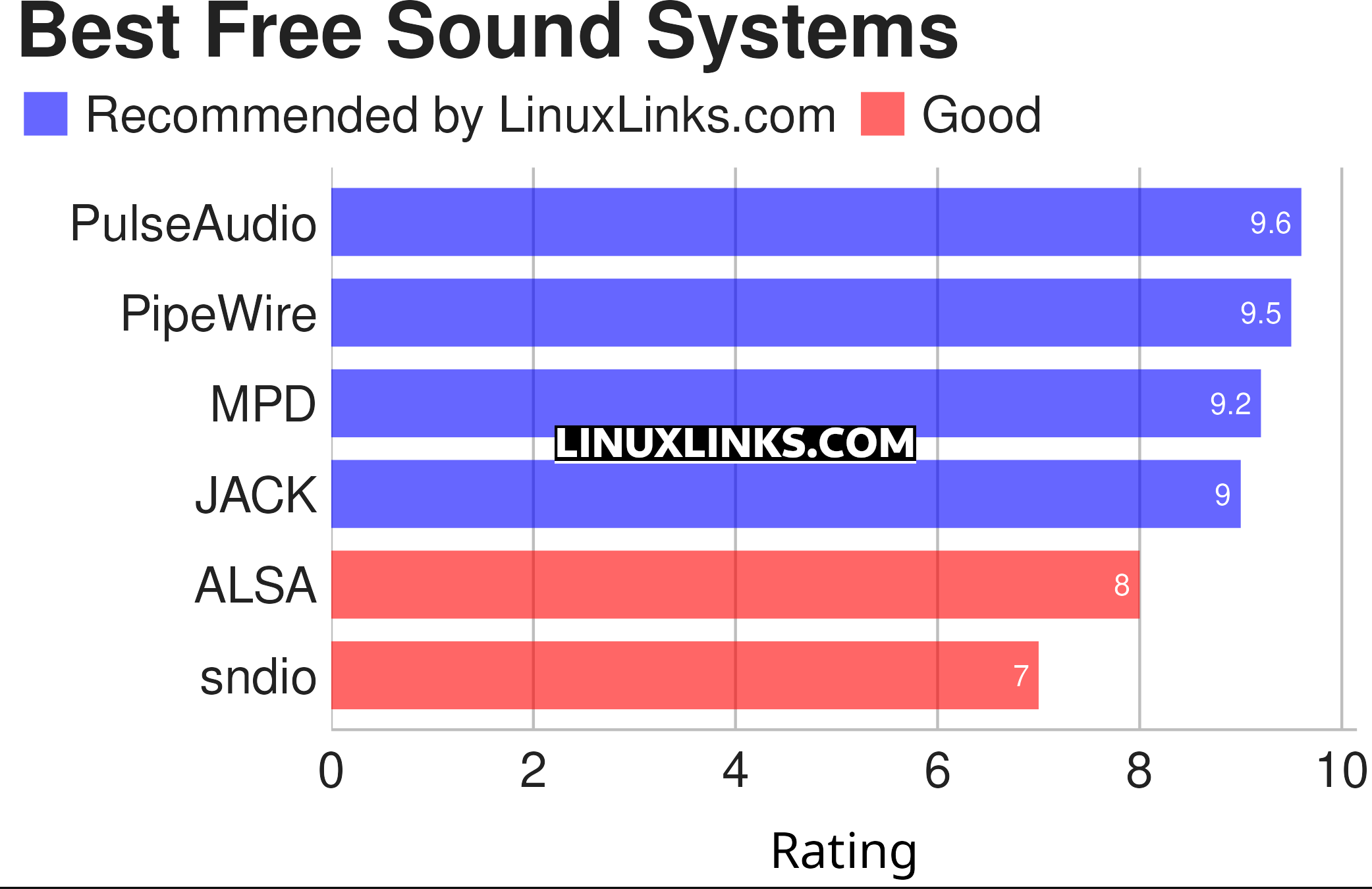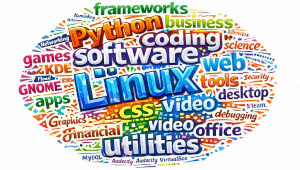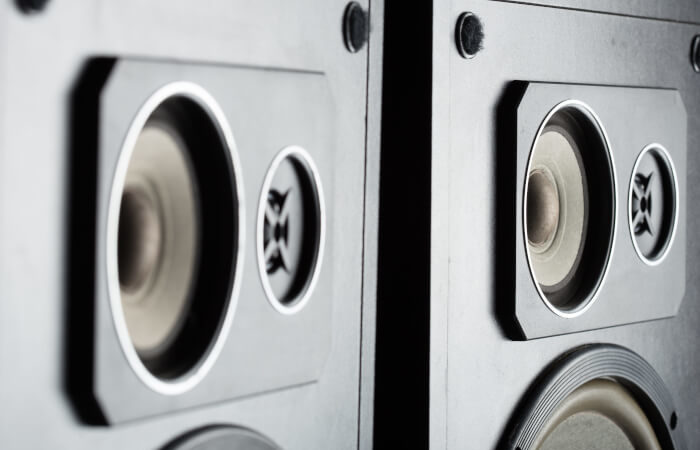A sound system is software that manages the use of and access to audio devices (usually a sound card). It commonly runs as a background process.
To provide an insight into the quality of software that is available, we have compiled a list of 6 high quality free and open source sound systems.
Here’s our verdict captured in a legendary LinuxLinks chart. We only feature open source goodness.

Let’s explore the 6 sound systems at hand. For each title we have compiled its own portal page, a full description with an in-depth analysis of its features, together with links to relevant resources.
| Audio Systems | |
|---|---|
| PulseAudio | Integral part of all relevant modern Linux distributions |
| PipeWire | Low-latency, graph based processing engine on top of audio and video devices |
| MPD | Flexible, powerful, server-side application for playing music |
| JACK | Professional low-latency sound server API and pair of daemon implementations |
| ALSA | Advanced Linux Sound Architecture |
| sndio | Small audio and MIDI framework |
This article has been revamped in line with our recent announcement.
Background Information
In the Linux kernel, there have historically been two uniform sound APIs used, either ALSA or OSS. ALSA is responsible for giving audio to all modern Linux distributions. It’s part of the Linux kernel itself, providing audio functionality to the rest of the system via an application programming interface (API) for sound card device drivers. Up to the 2.4 series of Linux kernels, OSS was the main and only sound system for Linux.
PulseAudio is a general purpose sound server intended to run as a middleware between your applications and your hardware devices, either using ALSA or OSS.
We cover streaming servers such as Icecast in a separate feature.
 Read our complete collection of recommended free and open source software. Our curated compilation covers all categories of software. Read our complete collection of recommended free and open source software. Our curated compilation covers all categories of software. Spotted a useful open source Linux program not covered on our site? Please let us know by completing this form. The software collection forms part of our series of informative articles for Linux enthusiasts. There are hundreds of in-depth reviews, open source alternatives to proprietary software from large corporations like Google, Microsoft, Apple, Adobe, IBM, Cisco, Oracle, and Autodesk. There are also fun things to try, hardware, free programming books and tutorials, and much more. |

